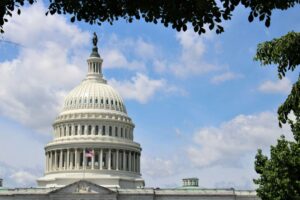Labeling obesity a disease may actually be counterproductive and not in the best interest of individuals who struggle with weight, according to new research published in the journal Psychological Science.
The findings suggest obese individuals who buy into such labeling place less importance on health-focused dieting and are less concerned about weight, which may in fact make them less likely to take steps to address the problem.
“Considering that obesity is a crucial public health issue, a more nuanced understanding of the impact of an ‘obesity is a disease’ message has significant implications for patient-level and policy-level outcomes,” says psychological scientist Crystal Hoyt, of the University of Richmond, who helped lead the research, which was prompted by the American Medical Association declaring obesity a disease in June 2013.
“Experts have been debating the merits of, and problems with, the AMA policy,” she says. “Te wanted to contribute to the conversation by bringing data rather than speculation and by focusing on the psychological repercussions.”
For the study, Hoyt and colleagues recruited more than 700 individuals to take part in an online survey after reading an article related to health and weight. Some participants read an article that described obesity as a disease, some read a standard public health message about weight, and others read an article specifically stating that obesity is not a disease.
Researchers also tracked the height and weight of the participants and classified them as “average weight” or “obese,” in line with World Health Organization guidelines.
The results showed that the particular message obese participants read had a clear impact on their attitudes toward health, diet and weight, as well as their behaviors. Obese participants who read the “obesity is a disease” article placed less importance on health-focused dieting and reported less concern for weight, compared to those who read the other two articles. They also chose higher-calorie options when asked to pick a sandwich from a provided menu.
“Together, these findings suggest that the messages individuals hear about the nature of obesity have self-regulatory consequences,” Hoyt says.
“In our ongoing work, we hope to gain a greater understanding of how the ‘obesity is a disease’ message influences beliefs about the controllability of weight. In addition, we are also interested in investigating the role of this message in reducing stigma against the obese,” she says.
For the original article, visit healthmax.com.
See an error in this article?
To contact us or to submit an article






















